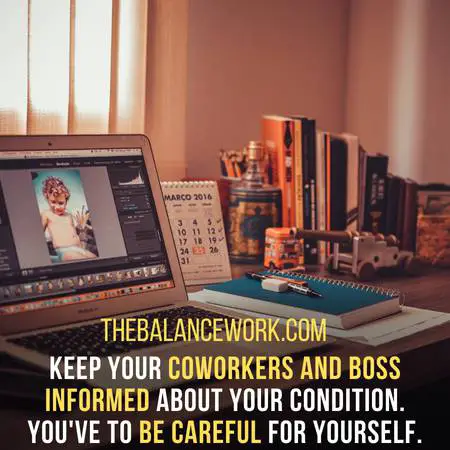Have you ever felt scared of not getting help before even being in a tough spot?
That’s what agoraphobia is like.
Discover jobs for people with agoraphobia, which can help them support themselves and aid in their treatment.
Key Takeaways
- People with agoraphobia often experience at least one panic attack in their lifetime.
- Becoming a hairdresser could be a great choice if you enjoy styling hair and doing makeup.
- Writing is an ideal job for agoraphobics, helping them express themselves freely.
- You can be a virtual tutor if you’re good at school subjects and enjoy helping students.
- If you’re artistic and notice small details, consider becoming a photographer.
- Communicate with your coworkers at work so they understand what to do when you’re under a panic attack.
- How your brain chemicals function also plays an important role in developing agoraphobia.
Easiest Jobs For Agoraphobics
Agoraphobics often experience at least one panic attack in their lifetime.
Some people with agoraphobia struggle in offices, but others manage jobs despite anxiety.
These easygoing jobs are ideal for individuals coping with agoraphobia.
1. The Job Of Child Care Workers
If you enjoy being around kids, you can earn money by working with them.
Choose between working at a childcare center with flexible hours or setting up a space at home.

You will care for children aged 0-3, including feeding, changing diapers, bathing, and playing with them.
2. Virtual Tutors – Agoraphobics
You can be a virtual tutor if you’re good at school subjects and enjoy helping students.
You’ll teach online from home using a laptop and can decide if you want to work part-time or full-time.
This job is great for agoraphobics because you can earn money without going outside.
3. Hair Dressers Or Cosmetologists
Becoming a hairdresser could be a great choice if you enjoy styling hair and doing makeup.
You can open a salon at home or work in an existing one.
This job lets you meet new people, which can boost your confidence.
Hairdressing is a good career because it’s always in demand; everyone wants to look their best.
4. Pet Sitter – One Of The Best Jobs For People With Agoraphobia
Consider being a pet sitter if you adore animals and hate seeing them suffer.
You’ll care for people’s pets when they’re away, which means visiting their homes.
Your duties include feeding, bathing, walking the pets, and taking them to the vet if needed.
The best part? You’ll make furry friends that can reduce stress and anxiety. It’s a win-win.
5. Call Center Agent
Are you good at talking on the phone and solving customer problems? Try being a call center agent from home.

You’ll handle calls, sort out issues, and take complaints.It’s perfect for working from home and to improve your communication skills.
6. Work As A Photographer
If you’re artistic and notice small details, consider becoming a photographer.
You can begin your own photography business or work independently.
It will help you build confidence when dealing with different clients.
Taking photos of nature will boost your creativity and make you feel good. You’ll end your day feeling happy.
7. IT Support – Jobs For People With Agoraphobia
Are you good at computers? Can you figure out the problem in a second? Then you can become IT support.
You’ll assist people with technical issues from home or at their office.
IT support is a great job if you like technology and helping people.
8. Freelance Writer Or Marketer
Writing is an ideal job for agoraphobics, helping them express themselves freely.
If you can write well on different topics, freelance writing is for you.

You can be a content writer, manage social media, or start a blog about topics you love.
Working from home is an option, making this job flexible.
9. Crafts And Fine Arts
Have you tried making something, and it turned out well? You can make money out of it.
If you enjoy arts and crafts, consider starting a business or selling online.
This opportunity allows you to meet new people and can benefit you in many ways.
So, what are you waiting for? Start selling your products and be your boss.
Here’s How To Manage Agoraphobia
Managing agoraphobia differs for everyone, so there’s no one-size-fits-all solution.

Here’s a basic outline to help manage agoraphobia:
– Learn what makes agoraphobia worse. For example, what causes panic attacks?
– Try various ways to manage anxiety in different situations.
– Use therapy techniques or go to therapy sessions regularly.
– Take antidepressants or anti-anxiety medications as prescribed.
Communicate with your coworkers at work so they understand what to do when you’re under a panic attack.
Some cases of agoraphobia are well-managed through medications and therapy as these are mild. In comparison, severe cases need more intense care for work or everyday tasks.
4 Causes Behind Agoraphobia
Here are four key reasons why agoraphobia happens:
1. Trauma Or Abuse
A person with a traumatic experience and a history of abuse can develop agoraphobia.
The fear and anxiety of such people are often aroused by anything that reminds them of past trauma.
2. Genetic disposition
If a family member has agoraphobia and an anxiety disorder, you’re more likely to develop it, too.
Studies state that agoraphobia has a strong genetic link.
3. Brain chemistry
How your brain chemicals function also plays an important role in developing agoraphobia.
A lack of balance in brain chemicals often causes feelings of anxiety and fear.
4. Another Phobia
If you have another fear, such as fear of flying or enclosed spaces, it can lead to agoraphobia.
A lack of balance in brain chemicals often causes feelings of fear.
8 Tips To Work With Agoraphobia
Here are eight helpful tips for managing agoraphobia while working:
– Take small steps forward and avoid pushing yourself too hard, as it can worsen your condition.
– Identify your anxiety triggers and avoid them, or learn to manage them when they occur.

– Set up a quiet workplace, such as a peaceful room, where you can go if you feel a panic attack coming.
– Always have emergency medication with you in case you need it.
– Keep yourself busy at work so you don’t have time to think about your agoraphobia.
– Be open with your coworkers about your condition and ask for their support.
– Make your anxiety management techniques and keep these in mind when needed.– See a therapist or psychiatrist to get help dealing with agoraphobia.
Conclusion
Agoraphobia can be challenging, but it’s manageable with help.
If you or someone you know has agoraphobia, seek help from a professional.
With the right support, people with agoraphobia can live fulfilling lives.
Remember, you can overcome it with medication, therapy, and self-care.
Take charge and start working on it now.
Frequently Asked Questions
Can you work with agoraphobia?
Yes, you can work with agoraphobia, making some job tasks difficult. But you can manage it in the right environment.
You have to talk to your employer and understand your triggers to avoid them, and you’re good to go. Multiple jobs are available for people with agoraphobia.
Is agoraphobia a severe mental illness?
Agoraphobia is not considered a severe mental illness. But it can lead to some serious problems if not taken care of.
It has an intense fear of open or public spaces, making everyday activities difficult. If you have agoraphobia, you may avoid going outside. Even leaving your house for work can become difficult.
How do agoraphobic people work?
Some people develop agoraphobia after one or two panic attacks and fear getting it again.
So it’s difficult for them to work, but it’s possible with a good employer and coworkers.
What kind of job is good for someone with anxiety?
There is no “perfect” job for someone with anxiety. However, certain jobs might better suit people who suffer from this condition.
For example, jobs that allow you to work from home or have much control over your environment might be better for someone with anxiety.
Last Updated on 2 years ago by Usama Ali
- 7 Jobs For People With Cerebral Palsy – Tips To Manage Yourself - October 6, 2022
- 15 Easy-On-Hand Jobs For People With Chronic Fatigue In 2022 - October 2, 2022
- Top 9 Low-Stress Jobs For People With Agoraphobia - October 1, 2022